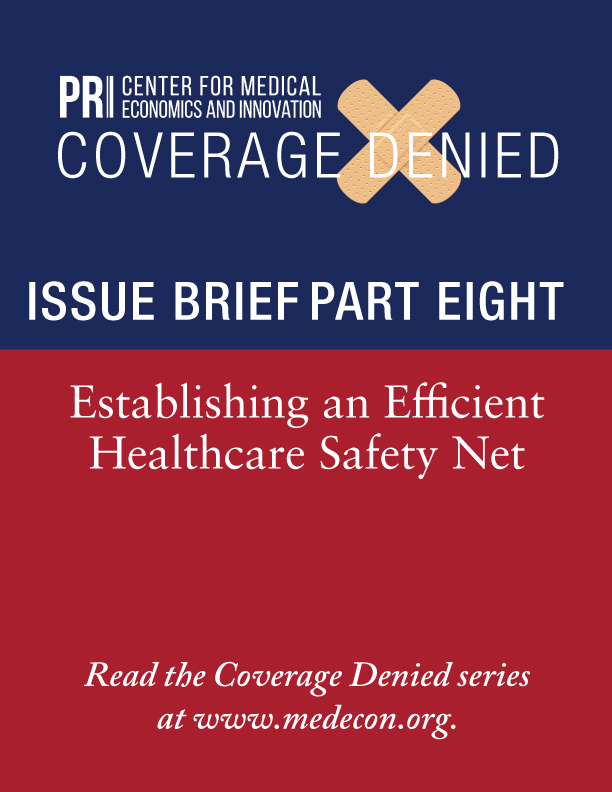NEW BRIEF: Cash-Based Support Would Empower Vulnerable to Buy Private Health Insurance, Create More Effective Safety Net
Providing cash-based support to the vulnerable to purchase private health insurance would increase access to quality healthcare at roughly the same per enrollee costs as Medicaid programs – finds the latest paper in the Coverage Denied series released today by the Center for Medical Economics and Innovation at the nonpartisan Pacific Research Institute.
“ Tens of millions are stuck in a flawed government-run healthcare system that provides sub-par care to patients, imposes huge taxpayer costs, and harms the broader healthcare system,” said Dr. Wayne Winegarden, director of PRI’s Center for Medical Economics and the series author. “By providing cash-based support, we can empower the vulnerable to buy private insurance, expand access to care, improve efficiency and promote innovation benefitting all patients.”
Tens of millions are stuck in a flawed government-run healthcare system that provides sub-par care to patients, imposes huge taxpayer costs, and harms the broader healthcare system,” said Dr. Wayne Winegarden, director of PRI’s Center for Medical Economics and the series author. “By providing cash-based support, we can empower the vulnerable to buy private insurance, expand access to care, improve efficiency and promote innovation benefitting all patients.”
“Establishing an Efficient Healthcare Safety Net” documents that Medicaid, which is supposed to provide access to quality healthcare regardless of income, is failing to serve its purpose. Compared to private insurance, Medicaid provides patients with low quality care, underpays providers, and imposes massive taxpayer costs.
The study presents data showing that Medicaid costs are more expensive per enrollee compared to private health insurance for individuals ($8,984 per enrollee for Medicaid versus $7,911 for private) and roughly the same for family/household coverage ($22,463 per household for Medicaid versus $22,461 for private).
Winegarden argues that unless Medicaid provides superior healthcare compared to private coverage, it is more efficient to replace the program with a cash-based system enabling people to purchase private health insurance.
The Coverage Denied series documents how the third-party payment system has turned insurance companies or government – as the largest healthcare payers – into gatekeepers restricting access to care, while imposing greater financial burdens on patients.
Reforming Medicaid is an essential component of reforms to remove the disincentives driving up health care costs and reduce healthcare quality and create a more efficient system. Other reforms suggested in the series include:
- Making health insurance tax deductible for individuals, giving them the same tax advantages as employers;
- Expanding the use of tax-advantaged health savings accounts, which empower patients to better control how their healthcare dollars are spent;
- Promoting greater drug affordability, including improving price transparency and fixing the drug formulary bias against low-cost medicines; and
- Removing barriers that disincentivize innovation, such as eliminating certificate of need and scope of practice laws and allowing plans to be sold across state lines.
“Patients and doctors should be empowered to make healthcare decisions, not third-party payers, drug middlemen or government,” said Winegarden. “A patient-centered healthcare payment system would better control rising costs, increase health outcomes, and improve efficiency.”

